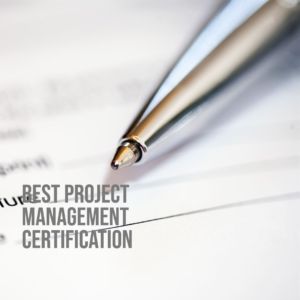Introduction
Table of Contents
Imagine you are in charge of a complex project that involves multiple teams, deadlines, deliverables, and stakeholders. How do you plan, execute, monitor, and control the project to ensure it meets the objectives, scope, quality, and budget? How do you deal with the challenges, risks, and changes that may arise along the way? How do you communicate, collaborate, and lead effectively as a project manager?
These are some of the questions that project managers face every day in their work. Project management is the art and science of applying knowledge, skills, tools, and techniques to achieve specific goals within a given time frame. Project managers are responsible for initiating, planning, executing, monitoring, and closing projects of various sizes, scopes, and complexities. They are also expected to manage the resources, stakeholders, and expectations involved in the project.
Project management is not an easy task. It requires a lot of knowledge, skills, experience, and competence to perform well as a project manager. That is why project management certification is a must-have for success in 2024 and beyond. Project management certification is a formal recognition of your project management abilities and achievements. It is a credential that validates your knowledge and skills in project management and demonstrates your commitment, professionalism, and competence to employers, clients, and peers.
In this article, we will discuss the benefits of project management certification and how it can help you achieve your career goals as a project manager. We will also provide some tips and resources on how to get certified as a project manager and how to maintain your certification. By the end of this article, you will have a clear understanding of why project management certification is a must-have for success in 2024 and beyond.
| Certification | Requirements | Cost | Benefits |
| Project Management Professional (PMP) | – Minimum 3 years of project management experience (with a bachelor’s degree) or 5 years (without a degree) – 35 hours of project management education | Varies (typically around $405 for PMI members and $555 for non-members) | – Globally recognized – Demonstrates expertise in project management – Opens doors to higher-paying roles |
| Certified Associate in Project Management (CAPM) | – High school diploma or equivalent – 23 hours of project management education | Varies (around $225 for PMI members and $300 for non-members) | – Entry-level certification – Validates foundational knowledge – Ideal for beginners |
| CompTIA Project+ | – No prerequisites – Recommended experience in project management | Varies (approximately $319) | – Vendor-neutral – Covers essential project management concepts – Suitable for IT professionals |
| PRINCE2 Foundation & PRINCE2 Practitioner | – No prerequisites for Foundation – Foundation certification for Practitioner – Practitioner certification requires passing the Foundation exam | Varies (Foundation: around £300, Practitioner: around £400) | – Widely used in Europe – Structured approach to project management – Focuses on processes and roles |
| Certified ScrumMaster (CSM) | – Attend a 2-day CSM course – Pass the CSM exam | Varies (typically $1,000 to $1,500) | – Agile-focused – Emphasizes collaboration and adaptability – Ideal for Scrum teams |
| Professional Scrum Master I, II, & III | – No prerequisites for PSM I – PSM II requires PSM I certification – PSM III requires PSM II certification | Varies (PSM I: around $150, PSM II: around $250, PSM III: around $500) | – Agile and Scrum-oriented – Validates Scrum knowledge and skills – Gradually advances expertise |
| Associate in Project Management (APM) | – No prerequisites – Recommended project management experience | Varies (around $300) | – Entry-level certification – Covers fundamental project management principles – Suitable for various industries |
| Certified Project Director (CPD) | – Minimum 5 years of project management experience – Bachelor’s degree or equivalent | Varies (approximately $1,000) | – High-level certification – Demonstrates strategic leadership – Ideal for senior project managers |
| The DPM School | – No prerequisites – Online digital project management course | Varies (course fees apply) | – Digital project management focus – Practical skills for complex projects – Eligible for PDUs |
| CompTIA Project+ | – No prerequisites – Recommended experience in project management | Varies (approximately $319) | – Vendor-neutral – Covers essential project management concepts – Suitable for IT professionals |
Remember to choose a certification that aligns with your career goals and interests. Each certification offers unique advantages, so consider your experience level, industry, and preferred methodology when making your decision.
Benefit 1: Project Management Certification Enhances Your Knowledge and Skills
One of the main benefits of project management certification is that it enhances your knowledge and skills in project management. Project management is a vast and dynamic field that requires a lot of expertise and competence to handle different types of projects. Project management certification provides you with a comprehensive and standardized framework for managing projects of different sizes, scopes, and complexities.
Project management certification covers the essential knowledge areas, processes, tools, and techniques that project managers need to master. These include:
- Project integration management: This is the process of coordinating all the aspects of a project, such as the scope, schedule, cost, quality, resources, risks, and stakeholders. It involves developing the project charter, the project management plan, and the project documents; directing and managing the project work; monitoring and controlling the project work; performing integrated change control; and closing the project or phase.
- Project scope management: This is the process of defining, validating, and controlling what is and what is not included in the project. It involves planning the scope management; collecting the requirements; defining the scope; creating the work breakdown structure (WBS); validating the scope; and controlling the scope.
- Project schedule management: This is the process of developing, maintaining, and controlling the project schedule. It involves planning the schedule management; defining the activities; sequencing the activities; estimating the durations; developing the schedule; and controlling the schedule.
- Project cost management: This is the process of planning, estimating, budgeting, and controlling the project costs. It involves planning the cost management; estimating the costs; determining the budget; and controlling the costs.
- Project quality management: This is the process of ensuring that the project meets the quality standards and expectations of the stakeholders. It involves planning the quality management; managing the quality; and controlling the quality.
- Project resource management: This is the process of planning, acquiring, developing, managing, and controlling the project resources, such as the human resources, materials, equipment, and facilities. It involves planning the resource management; estimating the resource requirements; acquiring the resources; developing the team; managing the team; and controlling the resources.
- Project communications management: This is the process of planning, managing, monitoring, and controlling the project communications. It involves planning the communications management; managing the communications; and monitoring the communications.
- Project risk management: This is the process of identifying, analyzing, planning, implementing, and monitoring the project risks. It involves planning the risk management; identifying the risks; performing qualitative and quantitative risk analysis; planning the risk responses; implementing the risk responses; and monitoring the risks.
- Project procurement management: This is the process of purchasing or acquiring the products, services, or results needed for the project. It involves planning the procurement management; conducting the procurements; controlling the procurements; and closing the procurements.
- Project stakeholder management: This is the process of identifying, engaging, and managing the project stakeholders. It involves identifying the stakeholders; planning the stakeholder engagement; managing the stakeholder engagement; and monitoring the stakeholder engagement.
By learning and applying these knowledge areas, processes, tools, and techniques, you can improve your project management skills and performance. You can also develop and update your skills in areas such as communication, leadership, risk management, quality control, and stakeholder engagement. These skills are essential for any project manager who wants to succeed in 2024 and beyond.
| Process Groups | Initiating | Planning | Executing | Monitoring and Controlling | Closing |
| Knowledge Areas | – Project Integration Management | – Project Scope Management | – Project Schedule Management | – Project Cost Management | – Project Quality Management |
| – Project Stakeholder Management | – Project Resource Management | – Project Communication Management | – Project Risk Management | – Project Procurement Management | |
| – Project Human Resource Management | – Project Risk Management | – Project Quality Management | – Project Stakeholder Management | – Project Stakeholder Management | |
| – Project Communications Management | – Project Procurement Management | – Project Human Resource Management | – Project Communications Management | – Project Communications Management | |
| – Project Risk Management | – Project Communications Management | – Project Stakeholder Management | – Project Integration Management | – Project Integration Management | |
| – Project Procurement Management | – Project Integration Management | – Project Integration Management | – Project Human Resource Management | – Project Human Resource Management |
Remember that these areas and groups interact, overlap, and depend on each other throughout the project lifecycle. Understanding their interplay is essential for effective project management1234.
Benefit 2: Project Management Certification Boosts Your Credibility and Recognition
Another benefit of project management certification is that it boosts your credibility and recognition as a project manager. Project management is a competitive and demanding field that requires a lot of trust and respect from employers, clients, and peers. Project management certification is a way of proving your project management abilities and achievements to the world. It is a credential that shows that you have met the rigorous standards and requirements of a reputable and recognized project management organization.
Project management certification is recognized and respected by the global project management community. It is a sign of your commitment, professionalism, and competence in project management. It can help you stand out from the crowd, build your reputation, and expand your network. By getting certified as a project manager, you can:
- Gain the trust and confidence of your employers and clients: Project management certification can help you demonstrate your project management skills and experience to your current and potential employers and clients. It can show them that you have the knowledge, skills, and tools to deliver successful projects on time, on budget, and on scope. It can also show them that you follow the best practices and ethical standards of project management. This can increase your chances of getting hired, promoted, or assigned to high-profile projects.
- Enhance your professional image and status: Project management certification can help you enhance your professional image and status as a project manager. It can show that you are a qualified, competent, and credible project manager who has achieved a high level of excellence and recognition in your field. It can also show that you are committed to continuous learning and improvement in project management. This can boost your self-esteem, confidence, and pride as a project manager.
- Join a global network of project management professionals: Project management certification can help you join a global network of project management professionals who share your passion, vision, and goals. You can connect, collaborate, and learn from other certified project managers from different industries, sectors, and regions. You can also access valuable resources, opportunities, and events that can help you advance your career and grow your network.
Benefit 3: Project Management Certification Increases Your Career Opportunities and Salary
The third benefit of project management certification is that it increases your career opportunities and salary as a project manager. Project management is a lucrative and rewarding field that offers a lot of potential for career advancement and growth. Project management certification is a key factor that can influence your career prospects and income as a project manager. It is a credential that can help you gain a competitive edge and a financial advantage in the project management market. By getting certified as a project manager, you can:
- Open up more doors for career advancement and growth: Project management certification can help you open up more doors for career advancement and growth as a project manager. It can show that you have the knowledge, skills, and experience to handle complex and challenging projects. It can also show that you are adaptable, flexible, and versatile in managing projects across different industries, sectors, and regions. This can increase your opportunities of getting hired, promoted, or assigned to high-profile projects that can boost your career and reputation.
- Increase your chances of getting hired, promoted, or assigned to high-profile projects: Project management certification can help you increase your chances of getting hired, promoted, or assigned to high-profile projects as a project manager. It can show that you have a proven track record of delivering successful projects on time, on budget, and on scope. It can also show that you have the credentials and qualifications that employers and clients look for in project managers. This can make you more attractive and desirable as a project manager in the project management market.
- Earn more money as a project manager: Project management certification can help you earn more money as a project manager. Studies show that certified project managers earn significantly more than their non-certified counterparts. According to the [Project Management Salary Survey] conducted by the Project Management Institute (PMI), the median salary for certified project managers in 2020 was $113,000, while the median salary for non-certified project managers was $91,000. This means that certified project managers earned 24% more than non-certified project managers on average. The salary gap can vary depending on the country, industry, sector, and experience level, but the trend is clear: project management certification pays off.
Conclusion
In this article, we have discussed the benefits of project management certification and how it can help you achieve your career goals as a project manager. We have seen that project management certification can:
- Enhance your knowledge and skills in project management
- Boost your credibility and recognition as a project manager
- Increase your career opportunities and salary as a project manager
We have also provided some tips and resources on how to get certified as a project manager and how to maintain your certification. By getting certified as a project manager, you can unlock your full potential and lead with confidence in 2024 and beyond.
If you are interested in getting certified as a project manager, we recommend you to check out the Project Management Professional (PMP) certification offered by the Project Management Institute (PMI). The PMP certification is the most widely recognized and respected project management certification in the world. It is based on the A Guide to the Project Management Body of Knowledge (PMBOK Guide), which is the global standard for project management best practices.
The PMP certification requires you to have at least three years of project management experience, 35 hours of project management education, and pass a 200-question exam. You can find more information about the PMP certification on the [PMI website] and even gain all of your exam prep from BrainSensei, a site dedicated to both the PMP and CMAP certifications.
We hope you have enjoyed this article and learned something valuable from it. We encourage you to take the next step towards getting certified as a project manager and reap the benefits of project management certification. Project management certification is a must-have for success in 2024 and beyond. Don’t miss this opportunity to advance your career and grow your network. Get certified as a project manager today!
| Benefit | Description |
| Knowledge Enhancement | – Certifications provide in-depth knowledge of project management principles, methodologies, and best practices. – Learn about industry-specific tools and techniques. |
| Skill Development | – Gain practical skills in planning, execution, risk management, and communication. – Enhance leadership, problem-solving, and conflict resolution abilities. |
| Credibility | – Certifications validate your expertise and commitment to the field. – Employers trust certified professionals due to standardized knowledge. |
| Global Recognition | – Project management certifications are recognized worldwide. – Apply skills across industries and regions. |
| Career Opportunities | – Certified professionals have better career prospects. – Some companies require certification for senior roles. |
| Higher Earning Potential | – PMP-certified professionals earn 22% higher median salaries than non-certified individuals. – Industry-specific certifications can further boost earnings. |
Remember that investing in project management certification not only enhances your skills but also opens doors to exciting career growth and increased earning potential, so if you are looking at taking this certification, look no further than BrainSensei to help with all of your preparation needs. 🌟💼





